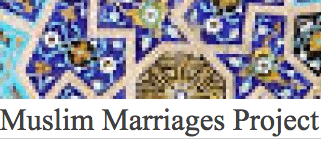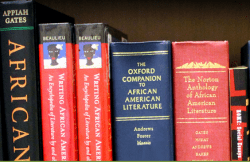What do you know: the summer is finally over – even in parts of the world where we would insistently like to think otherwise – and the fall is upon us. By now many of us have enjoyed refreshing breaks, likely spent by the pool or the sea, in the mountains or the woods. Or perhaps merely at home, with nothing but blissful idleness as company.
No matter what is the case, we hope that you are entering this new academic year in well-rested and invigorated spirits!
And with this, time to move right into action: once again, it’s events time! This time we invite you on a real world tour, as our events take us from The Netherlands to Portugal, Spain and different parts of the US. In terms of themes they focus on gender, race, identities, as well as migration and violence. The call for papers is still open for each event – so let there be submissions a plenty!
And remember: do get in touch with Andrea at andreak@allegralaboratory.net or Aude at audef@allegralaboratory.net if you want your event to feature in our next event list or if you feel like writing a short report!

25-26 August 2017, University of Amsterdam, The Netherlands
Particular kinds of ‘Muslim marriages’ have recently been the focus of public debates in Europe and beyond, both in Muslim-majority countries and in settings where Muslims are a minority. Controversies abound about a wide range of marriages, varying from unregistered or polygamous marriages, marriages with parties deemed too young or too old, mixed marriages, to transnational and tourist marriages. While these topics have also been addressed in academic research, most authors have focused on marriages of Sunni Muslims.
Our workshop brings together researchers who are engaged in empirical research about debating and concluding Shia marriages, starting from the search for a suitable partner to the celebration of the wedding. Our aim is to gain insight in how and to what extent various strands of Shia Islam– be it in terms of doctrine and religious authority, legal and ethical practices, rituals and everyday life – affect debates about marriages and the ways in which they are concluded. We are, in particular, interested in research about less conventional forms of marriage, including (but not limited to) marriages with Sunni Muslims and non-Muslims and temporary marriages. [more]
Deadline for submissions of abstracts: 1 October 2016

2-4 March 2017, Notre Dame University, Indiana, USA
Questions of race and gender continue to undergird broad sections of inquiry in the academy and beyond. The ongoing legacies and current manifestations of racism and sexism continue to demand intellectual analysis, institutional recognition, and collective intervention. Reaching a critical crescendo during the political upheavals of the 1960s’ civil rights/anti-colonial era and the responding cultural turn in the humanities, Black feminists have discussed the ways in which both race and gender are co-constitutive and rely on intersecting paradigms of power and constructions of difference. Indeed, the concept of “intersectionality,” coined by Kimberlé Williams Crenshaw, has become a key mode of framing how identities and sites of contestation around identity are multiple and complex. Furthermore, critics and activists from a myriad of socio-political milieus have underscored the importance of intersectional approaches in struggles for social justice and in the making of inclusive public spaces. From feminist scholarship to human rights policy to commentary via Twitter memes, intersectionality as a theoretical concept, method of analysis, and mode of collaborative action circulates in both grassroots and intellectual discourse.
The Intersectional Inquiries conference will offer a platform for scholars from various fields to interrogate the intersections of race and gender–as manifested materially and discursively–from a broad range of historical, global, and contemporary contexts. We call on scholars, activists, and students to attend rigorously to the ways that race structures gender, sexualities, class, and dis/ability and the dominating matrices of biopolitical violence and imperialism, as well as to trace how racialized subjectivities and non-normative embodiments challenge and radically fracture hierarchy. With this conference, our hope is to inspire impactful intellectual dialogue and assist in building ties that might lead to scholarly- and social justice-focused collaborations. [more]
Deadline for submission of proposals: 1 October 2016
Global conference: Migration
1-3 April 2017, Lisbon, Portugal
Migration has defined our age perhaps more than any other single issue, as the 20th and 21st centuries have been characterized by prolonged global mobility on a massive scale. Total estimates of the number of migrants, both international and internal, vary widely but the United Nations puts the number at approximately 300 million. The scale of this global migration and its effects are reshaping the world to the extent that in many areas, this level of mobility has created a new ‘normal’ or status quo that challenges the idea of the nation state and old notions of collective core identities and mainstream cultures.
This inter- and multi-disciplinary project seeks to explore the contemporary experience of migration, to pose questions about how and why people move, and study the effects of that mobility. The project seeks to examine how migration and the experiences of migration are conceived, discussed, represented, and understood, and how that understanding is subsequently applied or put into practice in governance and policy. [more]
Deadline for submission of abstracts: 28 October 2016

6 April 2017, The University of Texas at San Antonio, USA
Each year the University of Texas at San Antonio hosts a daylong African American Studies Spring symposium. On this 10th anniversary, the symposium invites presentations from across the disciplines that examine the complexity of Intersectional Black Identities. The event offers a space to explore all that “intersectionality” has signified and all that it has become.
This stimulating symposium will set the stage for collective exploration and celebration of Intersectional Black Identities across social and cultural realities. Topics will include a broad range of lived experiences, intellectual inquiries, and creative representations. The work of keynote speaker Jericho Brown, Associate Professor of English and Creative Writing at Emory University, provides a pathway for (re)considering the axes and edges of history, community, love, expression and more. [more]
Deadline for submission of abstracts: 31 October 2016

8-9 March 2017, Universidad Carlos III de Madrid, Spain
While it has long been noted that violence has, in one form or another, been inherent to the history of human being, little work was done historically to identify what ‘violence’ means and entails. This changed in the 20th century as a number of thinkers, especially within critical theory, phenomenology, psychoanalysis, existentialism, post-structuralism, and feminist thought, turned to the topic. Contemporary thinkers have continued to be influenced by these attempts, with Walter Benjamin’s famous essay ‘Critique of Violence’ being particularly important to their re-engagement with the nature and meaning of violence and its relationship to ethics and politics, a re-thinking that has also necessitated a critique and re-evaluation of the meaning of and relationship between the ethical and political.
The purpose of this two-day international conference is to gather a range of scholars to discuss the nature and meaning of violence within and from these ‘traditions.’ Suitable contributions may engage with the meaning of violence in Benjamin, Schmitt, Freud, Heidegger, Arendt, Sartre, Levinas, Deleuze, Derrida, Lacan, Girard, Butler, Critchley, and/or Žižek. Alternative perspectives and figures are also welcome so long as they aim to provide insights into the meaning of violence. [more]
Deadline for submission of abstracts: 30 November 2016



